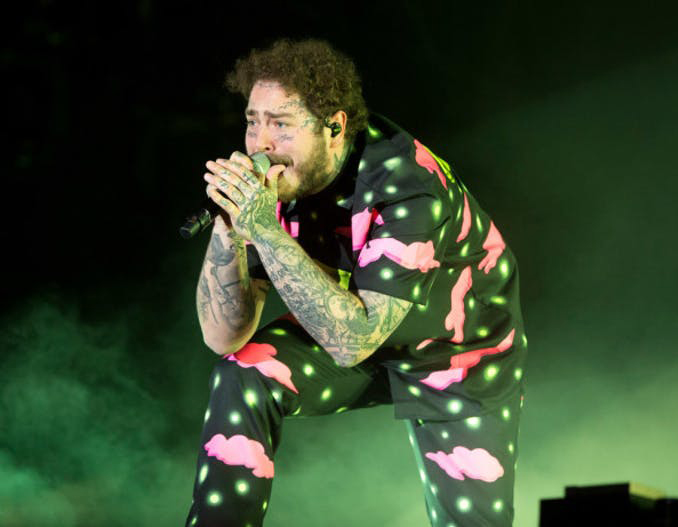Mental health needs to be talked about
Opinion Columnist Colin Horning discusses the coverage of mental health issues in modern music.
Nov 21, 2019
There is a growing trend in the music industry these days: songs and lyrics relating to depression, anxiety and mental health. These topics have typically been found more commonly in rock and its sub-genres such as grunge, metal and punk, but there is an increasing trend in lyrics and keywords about mental health in rap and pop music as well. Earlier this year, business and finance website Quartz.com studied the frequency of the words “depression” and “anxiety” in popular music songs since the late 1990s and found that there has been a steadily increasing use of these words in the lyrics. These two words are used approximately four times as often in current pop lyrics compared to back in 1999. Recent chart-topping song “I Don’t Care” by Ed Sheeran and Justin Bieber has Bieber sing the lyrics “I’m crippled with anxiety, but I’m told it’s where I’m supposed to be.” In the track “Boo’d Up” by singer Ella Mai, which won R&B Song of the Year at the 2019 Grammy’s, Mai sings “No, this ain’t really like me, can’t control my anxiety.” Countless other songs from big name artists such as Post Malone, Juice Wrld, J Cole and others have lyrics, songs and even entire albums dedicated to mental health and depression. So, what is the cause of this ever-increasing trend of modern music covering mental health?
The answer is simple: more and more people nowadays, especially young people, are being diagnosed with depression and anxiety. Even if someone doesn’t receive a proper diagnosis, there are still times in which hearing a song lyric about mental health with spark a feeling of emotion and relation to the song. The same Quartz.com article noticed a trend in the increase of lyrics about anxiety in relation to the number of people who are being diagnosed with depression and other mental health issues. Not surprisingly, the number of individuals reporting feeling depressed is almost in direct correlation to the increasing trend of lyrics and songs about mental health in popular music since around the year 2000. The likely explanation is not popular music causing people to feel depressed, but that the music industry has seen a market for producing music that will relate to its consumer base, more specifically young people who listen to pop and rap music.
Music is often times used as a form of therapy for many people, myself included. It provides us with a space to relate our emotions and experiences, knowing that someone else is feeling the same way and that we’re not alone in what we’re feeling. It’s where we turn to when we want to rejoice, when we’re feeling sad, when we’re trying to relax or when we want to have fun. But the increasing trend in popular music lyrics relating to mental health is a problem that is more prevalent in our overall society than just the music industry. It brings up many questions: why are people nowadays feeling more depressed than ever, despite living in one of the most prosperous nations in the history of the world? How come this trend started right around the turn of the century? Are there other factors to take into account for the increase in mental health issues, like social media and the Internet? These are questions that have become more and more talked about in the modern era and there only seems to be speculation on what could cause this, rather than a consensus amongst the scientific community.
The music industry is just one of the many ways in which the concept of mental health has become more prevalent in our society since the year 2000. We’re seeing more professional athletes open up about their struggles with depression (Kevin Love, Demar Derozan), more movies and TV shows dealing with depression and suicide (“13 Reasons Why,” “Joker”) and more pressure on state and the national government to provide more resources to those dealing with mental health issues. This is a topic that has slowly ingrained itself into our modern world, and, unfortunately, is only likely to become more common before it gets better.



















